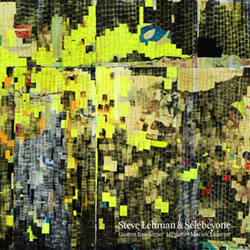
NY saxophonist Steve Lehman merges his sophisticated jazz roots with the experimental hip-hop community, including French saxophonist Maciek Lasserre, vocalists HPrizm & Gaston Bandimic alongside bassist Drew Gress, drummer Damion Reid, and pianist Carlos Homs.
Out of Stock
Quantity in Basket: None
Log In to use our Wish List
Shipping Weight: 4.00 units
Sample The Album:
Gaston Bandimic-Vocals (Wolof)
Hprizm-Vocals (English)
Steve Lehman-Alto saxophone
Maciek Lasserre-Soprano saxophone
Carlos Homs-Piano, keyboards
Drew Gress-Acoustic bass
Damion Reid -Drums
Click an artist name above to see in-stock items for that artist.
UPC: 808713006629
Label: Pi Recordings
Catalog ID: PI 66
Squidco Product Code: 22361
Format: CD
Condition: New
Released: 2016
Country: USA
Packaging: Digipack - 3 panel
Recorded, composed and produced by Steve Lehman and Maciek Lasserre.
"Hailed by The New York Times as "a state-of-the-art musical thinker with a reputation for sure-footed futurism," and "a quietly dazzling saxophonist," Steve Lehman has built a career creating innovative new music that packs a visceral wallop. His most recent album Mise en Abîme (Pi 2014) was the #1 Jazz Album of the Year in the NPR Jazz Critics Poll and in the Los Angeles Times and his previous recording, Travail, Transformation and Flow (Pi 2009) was the #1 Jazz album of the Year in The New York Times. In 2015, Downbeat Magazine ranked him as the "#1 Rising Star Jazz Musician of the Year" and he was awarded a Guggenheim Fellowship. In addition to being one of the most accomplished musicians in jazz, Lehman also received his doctorate in Music Composition from Columbia University in 2012 and his chamber music is regularly performed by the premiere contemporary classical music ensembles around the world.
Lehman's music has always drawn from disparate sources in distinctive ways, but with Sélébéyone, he takes an unexpected turn: drawing, from modern jazz, Senegalese rap, live electronics, and underground hip-hop, to create a unique form of urban experimentalism. The project stands apart from almost every other jazz/hip-hop collaboration that has preceded it: this is not an album where live musicians imitate repetitive samples in 4/4 time. Instead, the musical elements - shifting rhythms, electro-acoustic harmonies, and contemporary sound design - are wholly integrated with the lyrical content. Add to that the unique juxtaposition of English and Wolof that permeates the record, and one gets the sense of the development of a whole new musical universe.
And though the music on Sélébéyone may seem like a radical departure from Lehman's more recent ensemble work, it is actually the product of his long-standing engagement with experimental hip-hop and its surrounding community. Lehman's critically-acclaimed octet has released arrangements of seminal hip-hop tracks, like Wu-Tang Clan's "Living In the World Today" and Camp Lo's "Luchini." And his professional ties with Meshell Ndegeocello and other pioneering members of the contemporary R&B community date back to 2004: most recently Lehman was a featured soloist on Ndegeocello and Jason Moran's 2014 Blue Note release All Rise.
The musical relationships underpinning Sélébéyone are also decades old. HPrizm (AKA High Priest) - a legend of New York's underground hip-hop scene and a founding member of Antipop Consortium - has been one of Lehman's closest collaborators for over a decade, and the two continue to perform regularly in each other's ensembles. Saxophonist Maciek Lasserre, who also composed several of the pieces on the album, began studying with Lehman in 2005 and introduced Lehman to the burgeoning
Senegalese hip-hop scene in 2010 and began working with Gaston Bandimic - one of Senegal's most distinctive young rap stars - a few years later. According to Lehman, who brought everyone together: "We come from such disparate backgrounds - New York, Paris, Dakar - but we discovered a lot of common ground. HPrizm, Gaston, and Maciek are all Sufi Muslims, so that informed a lot of the overarching themes for the lyrics. Also Maciek, Gaston and I are all fluent French speakers, so we just started building off of those cultural foundations."
Sélébeyone's distinctive sound is also a result of the sonic expertise of noted hip-hop engineer Andrew Wright, a childhood friend of Lehman's since the early 1980s. Wright received a GRAMMY-nomination for his work on Kendrick Lamar's Good Kid, M.A.A.D. City, and in some ways, Sélébéyone delivers on the promise of Lamar's more mainstream collaborations with contemporary jazz artists like Ambrose Akinmusire, Robert Glasper, and Kamasi Washington. Lehman and Lasserre handled not only compositional duties but every aspect of the production on their respective pieces, including drum programming, sampling, and overall sound design. As a result, cutting-edge rhythms and harmonies combine effortlessly with pre-recorded samples in previously unheard ways. On tracks like "Laamb" and "Cognition," rhythms speed up and slow down simultaneously, providing an unconventional framework for HPrizm and Bandimic's searing lyricism, which touches on everything from politics in the Middle East, contemporary notions of Islamic mysticism, and even Allen Iverson. "Akap" and "Are You in Peace?" make use of ethereal harmonies and alternate tunings while on "Bamba," Bandimic calmly navigates an almost unending barrage of changing meters and asymmetrical rhythms. On "Geminou," the drum and bass parts shadow the rhythmic nuance of Gaston's verse while Lehman's spectral chords accent key moments in the text.
Throughout the record, the instrumental accompaniment of Carlos Homs, Drew Gress, and Damion Reid demonstrates an uncanny sensitivity to the musical material. Reid's innovative drum set adaptations of J-Dilla beats on Robert Glasper's In My Element (2007), are often cited as the beginning of the "drum set as MPC" wave amongst the current generation of young drummers. And his playing on Sélébéyone is remarkably adept at moving back and forth between electronic and acoustic textures.
In Wolof, the word "sélébéyone" refers to an intersection; a liminal terrain where two fixed entities meet and transform themselves into something heretofore unknown. New intersections and the investigation of boundaries have always been central to Lehman's music. As he explains: "Hip-hop is like every other musical genre. There are fierce individualists, people that are more marketplace oriented, and every shade in between. I've always gravitated towards artists like Company Flow, MF Doom, Pharoahe Monch, Freestyle Fellowship, and Antipop, artists who are really trying to innovate on every level. This record is very much trying to follow that mold. I think regardless of musical milieu - jazz, classical, rap - the way we work with rhythm, harmony, timbre, and compositional form, is as elaborate and personal as anything I've done." Sélébéyone, builds off of Lehman's groundbreaking work with spectral harmony and novel rhythmic structures to create an electrifying new model for improvised music while signaling the beginning of a thrilling new chapter in his recorded output."-Pi Recordings
Artist Biographies
• Show Bio for Hprizm Hprizm/High Priest of the Antipop Consortium is a NYC based-composer, producer and performer - Prizm's beat driven compositions have been presented globally in over 50 countries and performed alongside the likes of Public Enemy, Radiohead, The Roots and More. ^ Hide Bio for Hprizm • Show Bio for Steve Lehman "Described as "a state-of-the-art musical thinker" and a "dazzling saxophonist," by The New York Times, Steve Lehman (b. New York City, 1978) is a composer, performer, educator, and scholar who works across a broad spectrum of experimental musical idioms. Lehman's pieces for large orchestra and chamber ensembles have been performed by the International Contemporary Ensemble (ICE), So Percussion, Kammerensemble Neue Musik Berlin, the JACK Quartet, the PRISM Saxophone Quartet, and the Talea Ensemble. His recent recording, Mise en Abîme (Pi, 2014) was called the #1 Jazz Album of the year by NPR Music and The Los Angeles Times. And his previous recording, Travail, Transformation & Flow (Pi, 2009), was chosen as the #1 Jazz Album of the year by The New York Times. The recipient of a 2015 Guggenheim Fellowship and a 2014 Doris Duke Artist Award, Lehman is an alto saxophonist who has performed and recorded nationally and internationally with his own ensembles and with those led by Anthony Braxton, Vijay Iyer, Jason Moran, Meshell Ndegeocello, and High Priest of Anti-Pop Consortium, among many others. His recent electro-acoustic music has focused on the development of computer-driven models for improvisation, based in the Max/MSP programming environment. Lehman's work has been favorably reviewed in Artforum, Downbeat Magazine, The New York Times, Newsweek, and The Wire, and on National Public Radio, the BBC, and SWR. As a Fulbright scholar in France during the 2002-2003 academic year, Lehman began researching the reception of African-American experimental composers working in France during the 1970s. His article in the journal Critical Studies in Improvisation, "I Love You with an Asterisk: African-American Experimental Composers and the French Jazz Press, 1970-1980," is based on his Fulbright research. More recently, Lehman has published writings and presented lectures on a wide range of topics, including jazz pedagogy, rhythm cognition, and European notions of American experimentalism. His current scholarship, including a forthcoming contribution to the Oxford Handbook of Spectral Music, examines the overlapping histories of spectral composition and jazz improvisation. Lehman received his B.A. (2000) and M.A. in Composition (2002) from Wesleyan University where he studied under Anthony Braxton, Jay Hoggard, and Alvin Lucier, while concurrently working with Jackie McLean at the Hartt School of Music. He received his doctorate with distinction in Music Composition from Columbia University (2012), where his principal teachers included Tristan Murail and George Lewis. Lehman has taught undergraduate courses at Wesleyan University, the Conservatoire National Supérieur de Musique de Paris, New School University, and Columbia University, and has presented lectures at Amherst College, UC Berkeley, The Berklee School of Music, The Banff Centre, The Royal Academy of Music in London, and IRCAM in Paris, where he was a 2011 research fellow. Beginning in September 2016, Lehman will join the music faculty at The California Institute of the Arts." ^ Hide Bio for Steve Lehman • Show Bio for Maciek Lasserre "A musician with a unique creativity, Maciek Lasserre emerged onto the Paris scene and internationaly playing with contemporary jazz and experimental hip-hop projects." ^ Hide Bio for Maciek Lasserre • Show Bio for Drew Gress "Drew Gress (born November 20, 1959) is an American jazz double-bassist and composer born in Trenton, New Jersey, raised in the Philadelphia area, and currently based in New York City. Biography Gress became interested in jazz and the double bass while a teenager, joining the Pennsbury Concert Jazz Band, a nationally-prominent high school jazz ensemble, in 1975, spending two years as bassist and arranger for the group. His interest in composing original material for large ensembles, such as those of Johnny Richards, Billy May, and Pat Williams, led him to Baltimore's Towson State University in 1977, where he studied composition and counterpoint with Hank Levy, known for his work with Don Ellis and Stan Kenton. While at Towson, Gress established a playing relationship with saxophonist Ellery Eskelin, with whom he cofounded Joint Venture with Paul Smoker and Phil Haynes. They released three albums on Enja Records between 1987 and 1994. During the 1980s in the Baltimore/Washington DC area, he played with Sonny Stitt, Clifford Jordan, Albert Dailey, Mose Allison, Zoot Sims, Cab Calloway, Buddy Hackett, Phyllis Diller, and pianist Marc Copland, with whom he still plays today. He also served on the faculties of the Peabody Conservatory, Towson State University, and the Baltimore School for the Arts. He formed a quartet, Tekke, in 1989 with David Kane, Glenn Cashman, and Michael Smith. In 1997, he cofounded the cooperative improvising trio Paraphrase with saxophonist/composer Tim Berne and drummer Tom Rainey. Together, they pursued a compositional approach to free improvisational practice. They recorded three live albums together and toured extensively. In 1998, he released his first album as leader, Heyday, with his band Jagged Sky (featuring David Binney, Ben Monder, and Kenny Wollesen). 2001 saw the release of Spin & Drift with Uri Caine, Berne, and Rainey, in which he played pedal steel guitar for the first time. Earlier in the 1990s, he served tenures as artist in residence at University of Colorado-Boulder and at Russia's St. Petersburg Conservatory. Since 1992, Gress has maintained an extensive touring schedule, traveling to Europe, Asia, and South America. Those with whom he has and continues to work include Tim Berne, Ravi Coltrane, Uri Caine, John Hollenbeck, Fred Hersch, Marc Copland, Don Byron, Steve Coleman, Dave Douglas, Jack DeJohnette, John Surman, Ray Anderson, Erik Friedlander, Kenny Werner, Bill Carrothers, Ralph Alessi, Tony Malaby, Steve Lehman, and Edsel Gomez. To date, he has appeared on over 140 recordings, 4 of which have received Grammy nominations. Gress' own ensembles have toured Europe four times since 2002, in addition to isolated festival appearances in Italy and Portugal. In 2004, the UK's BBC Radio and London's Guardian selected his quartet's live radio broadcast as Jazz Concert of the Year. Composition awards include an NEA grant (1990), funding from Meet the Composer (2003), a Chamber Music America New Works Grant (2005), a CMA French-American Exchange Grant (2007), and an Encore Grant from that same organization (2008). He continues to compose for larger groups and has begun experimenting with virtual synthesizers." ^ Hide Bio for Drew Gress • Show Bio for Damion Reid "Damion Reid hailing from West Covina, California a city east of Los Angeles. He is the son of well-respected bassist and astute operatic singer and teacher. By the age of three, Damion was already playing in church. It was around the age of twelve that Damion began being mentored by the world-renowned drummer Billy Higgins. During these formative years Billy's spirit for life and music was deeply seeded in Damion's fertile mind. Seeing Damion's ability to grasp the music both, analytically and conceptually it wasn't long before Billy invited him to be a part of his drum collective. As he began to mature musically he found himself frequenting Billy's club "The World Stage," learning and playing with the likes of Billy Childs, George Bohanon and Oscar Brashear. As Damion continued to cultivate his love for music through his high school years, he managed school life with professional obligations. Damion graduated High School and made the move to Boston, Massachusetts New England Conservatory of Music where he spent time with Cecil McBee, Danilo Perez, Fred Buda and George Russell as well as his musical peers. It was while in Boston between the years of 1998 and 1999 that he received the prestigious Alan Dawson scholarship. He then was accepted into the Thelonious Monk Institute of Jazz at the University of Southern California. Soon finding himself trekking to New York City to attend The New School. He then began performing and touring alongside Greg Osby, Terence Blanchard, Robert Glasper, Steve Lehman, Rudresh Mahanthappa, Jacky Terrasson, Ravi Coltrane, Reggie Workman, Marcus Belgrave, Lauryn Hill, Robert Hurst, Bilal, Meshell Ndegeocello, Jason Moran, Mark Shim, Mark Turner, Chihiro Yamanaka, Steve Coleman, Bunky Green and many others." ^ Hide Bio for Damion Reid
Have a better biography or biography source? Please Contact Us so that we can update this biography.
11/20/2024
Have a better biography or biography source? Please Contact Us so that we can update this biography.
Have a better biography or biography source? Please Contact Us so that we can update this biography.
11/20/2024
Have a better biography or biography source? Please Contact Us so that we can update this biography.
11/20/2024
Have a better biography or biography source? Please Contact Us so that we can update this biography.
Track Listing:
1. Laamb
2. Are You In Peace?
3. Akap
4. Origine
5. Cognition
6. Hybrid
7. Dualism
8. Geminou
9. Bamba
Improvised Music
Jazz
NY Downtown & Jazz/Improv
Pi Records
Septet recordings
Unusual Vocal Forms
Search for other titles on the label:
Pi Recordings.


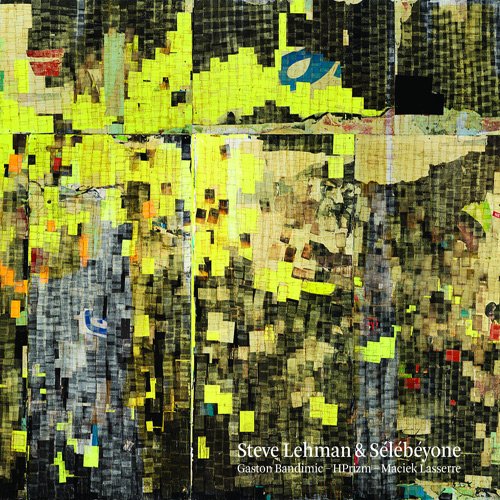
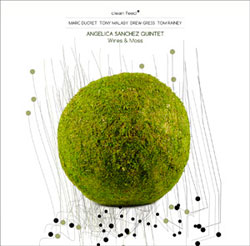
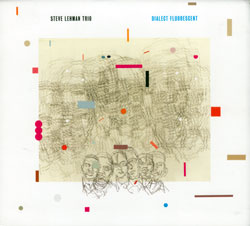
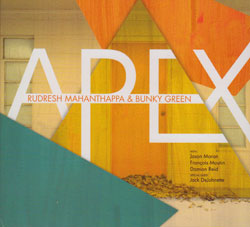
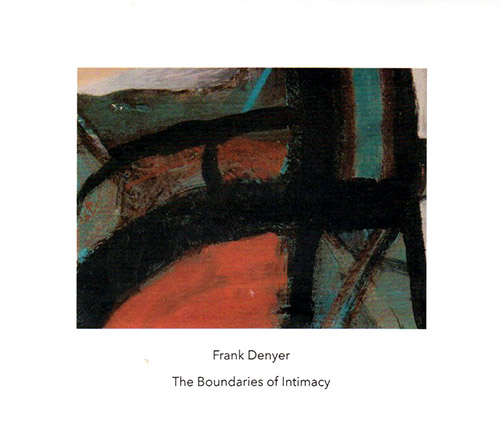




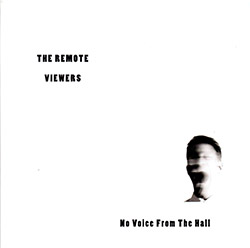

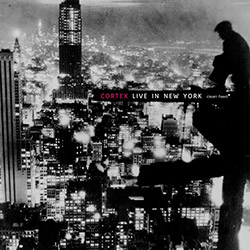

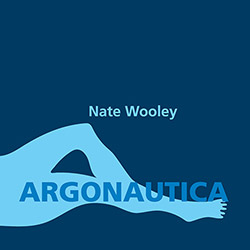
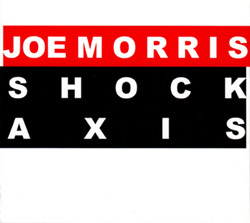
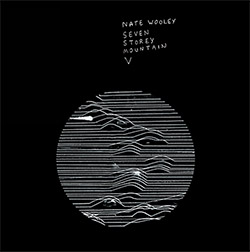
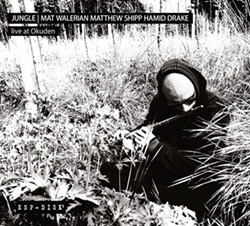
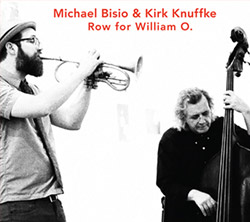

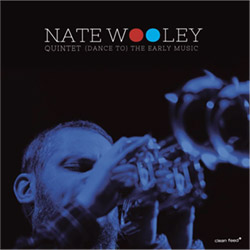



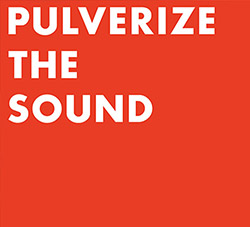





![Guy, Barry / Ken Vandermark: Occasional Poems [2 CDs]](https://www.teuthida.com/productImages/misc4/34849.jpg)
![Novoa / Carter / Mela Trio: Vol.1 [VINYL]](https://www.teuthida.com/productImages/misc4/35236.jpg)


![Elephant9 : Mythical River [VINYL]](https://www.teuthida.com/productImages/misc4/34624.jpg)
![Evans, Peter (Evans / Eldh / Black): Extra [VINYL]](https://www.teuthida.com/productImages/misc4/35279.jpg)

![McPhee, Joe: Straight Up, Without Wings [BOOK]](https://www.teuthida.com/productImages/misc4/35454.jpg)
![Jeck, Philip: rpm [2 CDs]](https://www.teuthida.com/productImages/misc4/35455.jpg)













![Barker / Parker / Irabagon: Bakunawa [VINYL]](https://www.teuthida.com/productImages/misc4/35533.jpg)
![Blaser, Samuel / Marc Ducret / Peter Bruun: Dark Was The Night, Cold Was The Ground [VINYL 10-inch]](https://www.teuthida.com/productImages/misc4/35492.jpg)








![Warren, Kenny (Warren / Hoffman / Ellman): Sweet World [VINYL]](https://www.teuthida.com/productImages/misc4/35451.jpg)




![Blake, Ran / Dave Knife Fabris: Live Amsterdam 2006, First Visit [CD + POSTCARDS]](https://www.teuthida.com/productImages/misc4/35275.jpg)













![DNS: Taking Big Bites Of The Khandas Three Cafes Deep [2 CDs]](https://www.teuthida.com/productImages/misc4/35334.jpg)




![Cleaver, Gerald: The Process [VINYL]](https://www.teuthida.com/productImages/misc4/34966.jpg)




![Alva Noto: HYbr:ID II [VINYL 2 LPs]](https://www.teuthida.com/productImages/misc4/35201.jpg)

![Baron, Derek / Luke Martin: Distinct and Concealed [CASSETTE + DOWNLOAD]](https://www.teuthida.com/productImages/misc4/35079.jpg)

![Lyle, Erica Dawn : Colonial Motels [CASSETTE + DOWNLOAD]](https://www.teuthida.com/productImages/misc4/35080.jpg)









![Sanna, Claudio: Compositori Sardi Contemporanei II [2 CDs]](https://www.teuthida.com/productImages/misc4/35317.jpg)







![Zurria, Manuel: Fame di Vento [3 CDs]](https://www.teuthida.com/productImages/misc4/35167.jpg)

![Granberg, Magnus / Nattens Inbrott / Skogen: Holde Traume, Kehret Wieder! [2 CDs]](https://www.teuthida.com/productImages/misc4/35038.jpg)
![Frey, Jurg: Outermost Melodie [2 CDs]](https://www.teuthida.com/productImages/misc4/35039.jpg)

![Pavone, Jessica: Reverse Bloom [VINYL]](https://www.teuthida.com/productImages/misc4/34895.jpg)




![Modney (Modney / Wooley / Gentile / Roberts / Pluta / Symthe / ...): Ascending Primes [2 CDs]](https://www.teuthida.com/productImages/misc4/34852.jpg)









![Elephant9 with Terje Rypdal: Catching Fire [VINYL 2 LPs]](https://www.teuthida.com/productImages/misc4/35355.jpg)
![Deerlady (Obomsawin, Mali / Magdalena Abrego): Greatest Hits [VINYL]](https://www.teuthida.com/productImages/misc4/34876.jpg)




![Haino, Keiji: Black Blues [2 CDs]](https://www.teuthida.com/productImages/misc4/35109.jpg)



![Surplus 1980: Illusion of Consistency [CD]](https://www.teuthida.com/productImages/misc4/35069.jpg)
![Staiano, Moe: Away Towards the Light [VINYL + DOWNLOAD]](https://www.teuthida.com/productImages/misc4/35037.jpg)



![Caveira (Gomes / Sousa / Abras / Ferrandini): Ficar Vivo [VINYL]](https://www.teuthida.com/productImages/misc4/34643.jpg)
![Gregg, J. J. / David Van Auken: Lunar Prairie [CD w/ DOWNLOAD]](https://www.teuthida.com/productImages/misc4/34611.jpg)

![Coultrain: Mundus [VINYL]](https://www.teuthida.com/productImages/misc4/32439.jpg)
![Mattin: Songbook #6 [VINYL]](https://www.teuthida.com/productImages/misc4/27317.jpg)
![Punkappella: Wake Up [7-inch VINYL]](https://www.teuthida.com/productImages/misc4/17519.jpg)
![Residents, The: WARNING: UNiNC.: Live And Experimental Recordings 1971-1972 [VINYL 2 LPs]](https://www.teuthida.com/productImages/misc4/31521.jpg)
![Coultrain: Phantasmagoria [VINYL]](https://www.teuthida.com/productImages/misc4/30142.jpg)
![Lennon, Sean Ono: Asterisms [VINYL]](https://www.teuthida.com/productImages/misc4/34517.jpg)

![Coley, Byron: Dating Tips for Touring Bands [VINYL]](https://www.teuthida.com/productImages/misc4/17906.jpg)

![Lost Kisses: My Life is Sad & Funny [DVD]](https://www.teuthida.com/productImages/misc4/lostKissesDVD.jpg)